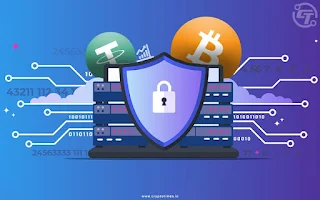Cryptocurrency Security: How to Protect Your Investments from Hacks
Cryptocurrency has become a significant part of the digital economy, providing new investment opportunities and decentralized financial systems. However, with this new frontier comes a host of risks, particularly regarding security. Cryptocurrency hacks and thefts are not uncommon, and many investors have fallen victim to cybercriminals. To safeguard your investments, it's crucial to understand the various threats and adopt the best practices for securing your digital assets.
Common Cryptocurrency Security Threats
-
Phishing Attacks:Phishing is one of the most common methods used by hackers to gain access to your cryptocurrency holdings. Cybercriminals will often send fake emails or create fraudulent websites that appear legitimate, tricking you into sharing your private keys, login credentials, or recovery phrases.
-
Malware and Ransomware:Malware can infect your computer or smartphone, allowing hackers to steal sensitive information, such as private keys. Ransomware can lock your device or wallet, demanding payment for its release. This type of attack can be particularly devastating as it targets your private keys or wallet passwords.
-
SIM Swapping:In SIM swapping attacks, hackers convince your mobile provider to transfer your phone number to a new SIM card, enabling them to gain access to your two-factor authentication (2FA) codes. This can be disastrous if your cryptocurrency accounts rely on SMS-based 2FA for added security.
-
Exchanges and Wallet Breaches:Although many cryptocurrency exchanges and wallet providers have strong security measures, breaches are still possible. Hackers may target exchanges to steal user funds or exploit vulnerabilities in their systems. If you're storing your funds on an exchange, it's crucial to ensure it has strong security protocols and insurance in place.
Best Practices for Cryptocurrency Security
-
Use a Hardware Wallet:Hardware wallets, such as Ledger or Trezor, are among the safest ways to store cryptocurrency. These devices store your private keys offline, making it nearly impossible for hackers to access your funds remotely. Always back up your recovery phrase securely, and never share it with anyone.
-
Enable Two-Factor Authentication (2FA):Two-factor authentication adds an extra layer of security to your accounts. Ensure that you enable 2FA on all of your cryptocurrency exchanges and wallet accounts. It's advisable to use app-based 2FA (like Google Authenticator or Authy) rather than SMS-based 2FA, as SMS can be compromised through SIM swapping.
-
Beware of Phishing Scams:Always be cautious when receiving unsolicited messages or emails. Do not click on suspicious links or provide your private information to unknown sources. Always double-check the URL of the website you're visiting to ensure it’s legitimate.
-
Keep Your Private Keys Private:Your private keys are the only way to access your funds, so it’s critical that you store them securely. Avoid storing your private keys on online devices or in cloud storage. Instead, use a secure, encrypted offline method, such as a hardware wallet or a secure paper backup.
-
Keep Software Up to Date:Make sure your devices, wallets, and software are always up to date with the latest security patches. Many attacks exploit outdated software to infiltrate devices and steal sensitive information. Keeping everything up to date helps to minimize vulnerabilities.
-
Use Multi-Signature Wallets:Multi-signature wallets require multiple private keys to authorize a transaction. This means that even if one of your private keys is compromised, your funds will remain safe. Multi-signature wallets provide an added layer of security for high-value crypto holdings.
-
Be Cautious When Using Public Wi-Fi:Avoid accessing your cryptocurrency accounts or performing transactions when connected to public Wi-Fi. Hackers can easily intercept your data on unsecured networks. Always use a Virtual Private Network (VPN) when accessing your accounts on public networks.
-
Use Trusted Exchanges and Platforms:When choosing an exchange or platform for trading or storing your cryptocurrency, research its reputation and security measures. Look for platforms with strong security protocols, such as cold storage for assets, insurance, and regulatory compliance.
Conclusion
Cryptocurrency offers exciting investment opportunities but also exposes investors to significant risks. By staying vigilant and implementing best practices for security, you can significantly reduce the risk of hacks and theft. Remember to store your assets securely, use strong authentication methods, and be aware of common threats. By taking the necessary precautions, you can protect your investments and ensure your cryptocurrency journey remains secure.
